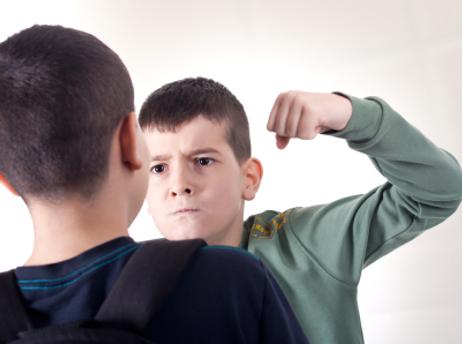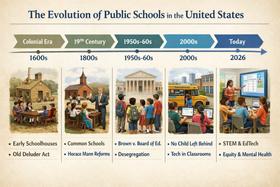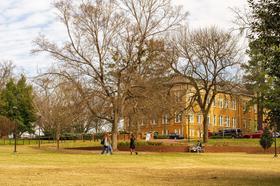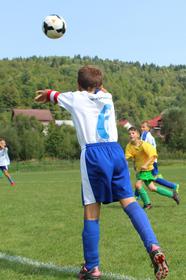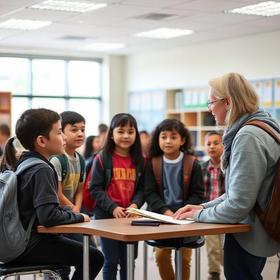The consequences for school fights may no longer be limited to a visit to the principal’s office and detention. In light of the last decade’s rise in school violence, many students find themselves facing legal consequences for their misbehavior on campus.
In years past, school fights and bullying would only result in school-based punishments, such as suspension or detention. Today, however, a rising number of middle school and high school teens are being arrested for their in-school malfeasances.
School Fights: The Rising Threat
Public schools nationwide report more severe punishments for school fights and student misbehavior. For example, WRAL News of Wake County, North Carolina, reported that three students were arrested after several fights erupted at the Knightdale High School. According to reports, the police were called to the school after multiple fights broke out among students.
Allegedly, one 16-year-old student and another 17-year-old student were engaged in crimes such as “disorderly conduct” and “simple affray,” resulting in the two students’ arrests. In addition, an older 18-year-old student was also arrested, as this particular student allegedly tried to join in the fight, and reports also suggest that the 18-year-old student “Took a swing at an officer who was trying to detain him.”
While students 18 and older are understandably tried as adults, many community members question whether the 16 and 17-year-old students should have been similarly reprimanded, as they are technically minors.
This video discusses how to deal with fighting in school.
Many school leaders argue that law enforcement interventions were imperative despite public uncertainty. Approximately 40 police officers were required to rush to Knightdale High School to break up the immense student fight. Erupting in the cafeteria of the school, an estimated 1,900 students could have been in the lunchroom at the time of the fights, and police intervention was critical for keeping innocent students safe from danger.
How Young is Too Young for Legal Interventions?
Outside of Wake County, other public schools in the United States have also implemented legal interventions and punishments – often for very young students.
As The Statesman Journal reveals, two middle school students were arrested from their Marion County public school due to their misbehavior. According to Silverton Police Sergeant Jerry Blaylock, a fight involving four to six students broke out at Mark Twain Middle School, located in Oregon. When the fight erupted after school, police officers broke up the students and ordered the adolescents to go home.
Unfortunately, 45 minutes later, police officers were called back to the scene; not only did the fight continue, but nearby witnesses reported seeing one of the adolescents flash a handgun. Before police arrived, in an attempt to prevent serious harm to the students, the witness reportedly “Tackled the teen while another adult took the gun away.” Due to the severity of the crime and the reliable accounts of the witnesses, officers responding to the scene quickly escorted two of the teens, ages 13 and 16, into police custody. Upon their arrest, both juveniles were charged with disorderly conduct. Adding to this charge, the teen allegedly holding the gun was further charged with “unlawful possession of a firearm and second-degree assault.”
Historically, school leaders have attempted to regulate student misbehavior through on-campus punishments and parental intervention. However, many fear that today’s violent on-campus outbursts result in unpredictable danger for both other students and faculty members – which explains the rise in police intervention.
This video illustrates the purpose of an intervention program.
According to ABC News, this may be the case in Queen Creek, Arizona, where “11 students were arrested and charged with aggravated assault after a fight with teachers and staff.” Some of the students allegedly used broomsticks as weapons, inflicting injuries on others. Subsequently, the police reacted by arresting and booking all students engaged in the brawl who were 18 years or older. Students under 18 were also arrested and booked; however, these juveniles were sent to the nearby Southeast Juvenile Detention Center, while the adult students were sent directly to the community’s main jail.
Offering his own opinion on the charges presented to the teens, Queen Creek Sheriff Arpairo argued, “Teachers have a tough enough job today without having to go to school every day worrying about being physically assaulted like this. Hopefully, these students will be held responsible by the criminal justice system.”
The days of simple detention have faded, and today’s public school students may face legal reprimands for misbehavior. Hopefully, this trend will deter teens from engaging in acts of school violence, ultimately creating safer campus environments.
Questions? Contact us on Facebook and Instagram. @publicschoolreview
#SchoolSafety #LegalConsequences #StudentDiscipline #SchoolViolence #JuvenileJustice

